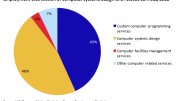 In the peer review process, a paper is submitted to a journal and evaluated by several reviewers. (Reviewers are often individuals with an impressive history of work in the area of interest, that is, the specific area that the article addresses). After critiquing the paper the reviewers submit their thoughts to the editor. Then, based on the commentaries from the reviewers, the editor decides whether to publish the paper, make suggestions for additional changes that could lead to publication, or reject the paper.
In the peer review process, a paper is submitted to a journal and evaluated by several reviewers. (Reviewers are often individuals with an impressive history of work in the area of interest, that is, the specific area that the article addresses). After critiquing the paper the reviewers submit their thoughts to the editor. Then, based on the commentaries from the reviewers, the editor decides whether to publish the paper, make suggestions for additional changes that could lead to publication, or reject the paper.
The primary purpose of peer review is to ensure that the papers published are valid and unbiased.
Single Blind and Double Blind Reviews
In single blind reviews authors do not know who the reviewers are. In double blind reviews authors do not know who the reviewers are, nor do reviewers know the identity of the authors. In many fields single blind reviews are the norm, while in others double blind reviews are preferred.
“Peer review is one way (replication is another) science institutionalizes the attitudes of objectivity and public criticism. Ideas and experimentation undergo a honing process in which they are submitted to other critical minds for evaluation. Ideas that survive this critical process have begun to meet the criterion of public verifiability” (Stanovich, 2007, p. 12).
Peer Review Criticisms
The peer review process is not infallible. Criticisms include:
- Reviewers find it hard to remain purely objective due to their own education, experience and preconceived notions
- The process is slow
- Critics point out that there are many examples of faulty research published in peer-reviewed journals, which shows the peer review process is often unsuccessful in weeding out bad science
- Reviewers tend to be highly critical of articles that contradict their own views, while being less critical of articles that support their personal views (this is an example of “myside bias”)
- Well-known, established scientists are more likely to be recruited as reviewers
Conclusion
The peer review process is not perfect, but it is the best safeguard we have against junk science. When evaluating the worth of scientific data, in addition to verifying its publication in a peer-reviewed journal, it is important to take into consideration: funding sources, whether the study has been replicated, study design, sample size, and conflicting interest (design details and critiques will be discussed in later articles).
Source: psychcentral.com
You might also like:

















A peer reviewed journal is an academic or scientific periodical whose article is evaluated prior to publication.
well it's edited by psychologists so yes in a way it is.